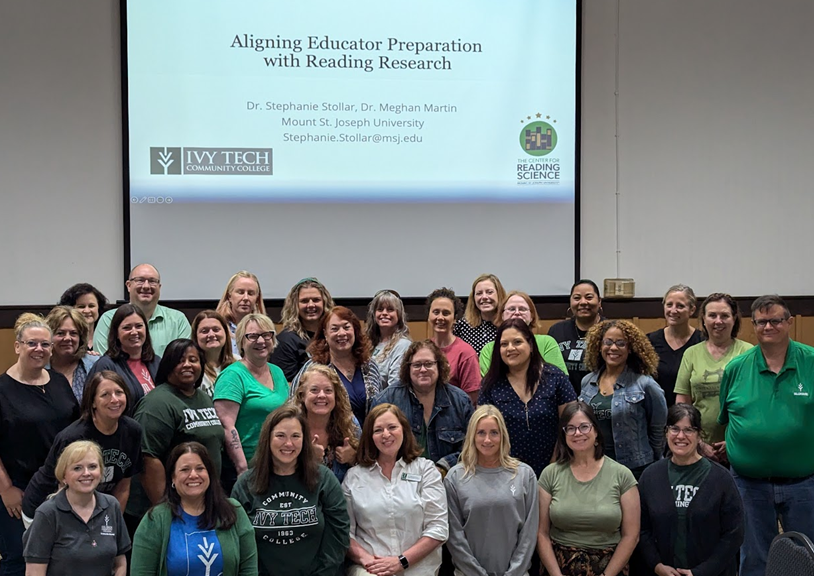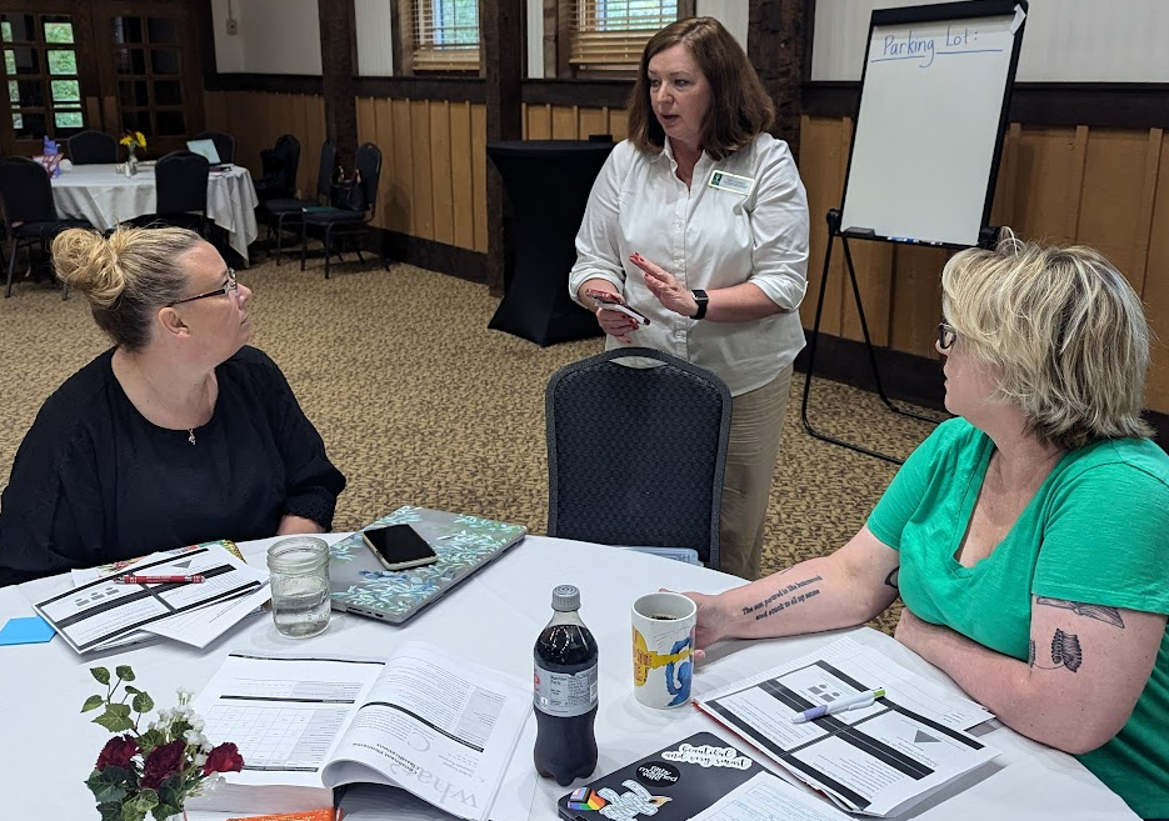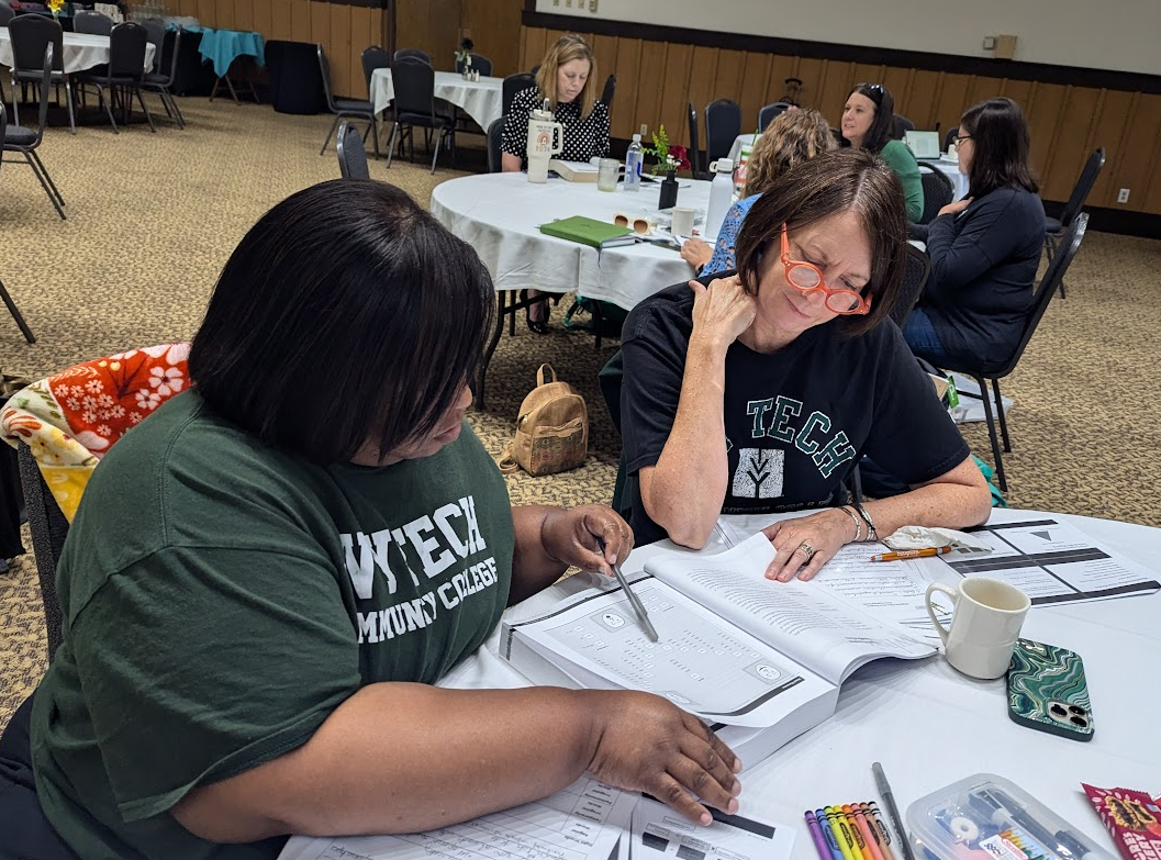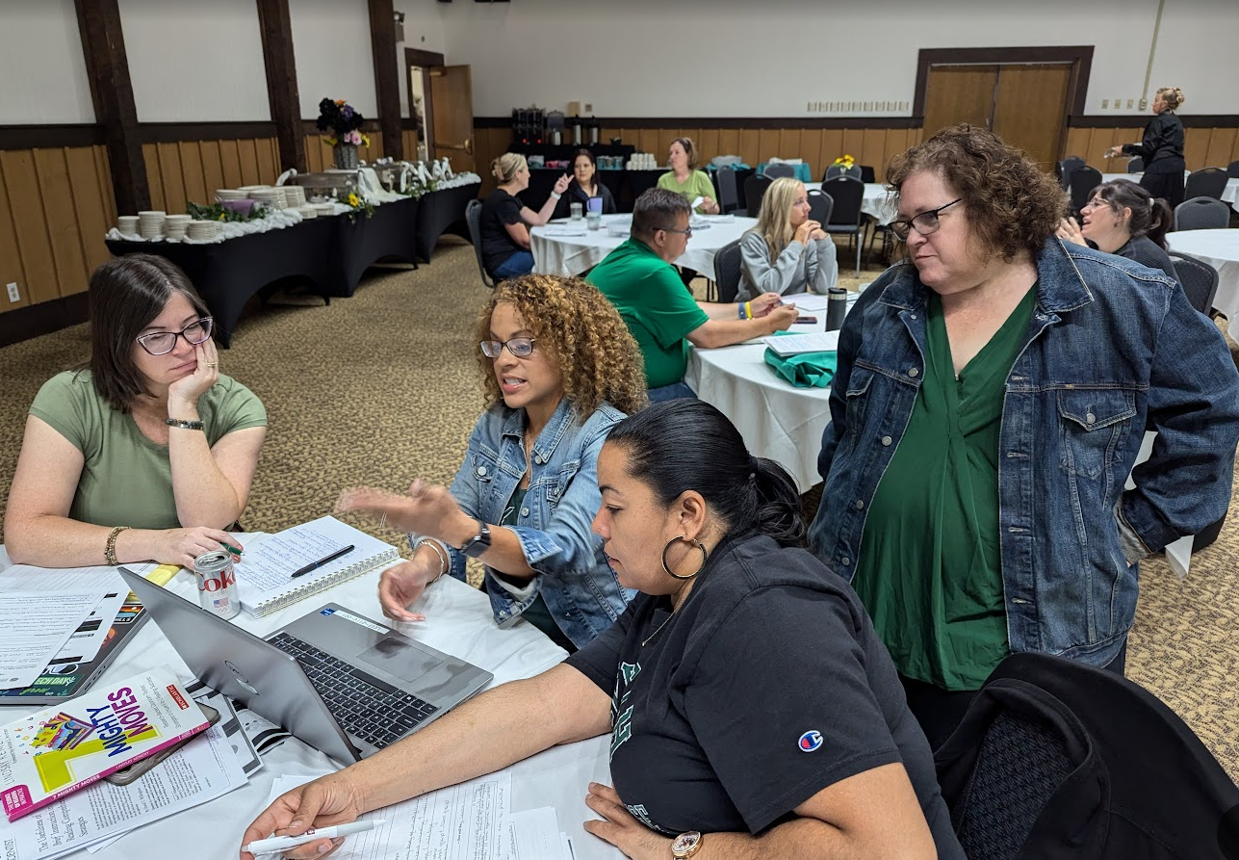Raising the Bar for Teacher Prep: Ivy Tech and CELL Lead the Way in Literacy Education

Partnership gives future teachers a head start in the science of reading and strengthens Indiana’s educator pipeline
When Dr. Tracy Hastings talks about literacy, it’s personal.

She grew up in rural west Tennessee, the daughter of a father with dyslexia who dropped out of school and never truly learned to read. His struggle became her motivation. Tracy went on to become the first in her family to get a postsecondary degree—starting at community college—before becoming a teacher and instructional coach. She has dedicated her career to working with struggling readers and the educators who teach them.
That commitment drove her to a role as Executive Director of Education and Early Literacy Initiatives at Ivy Tech Community College, where she helped lead one of Indiana’s most ambitious efforts to strengthen the way future teachers learn to teach reading. It is work made possible through Lilly Endowment’s Advancing Science of Reading in Indiana (ASRI) initiative and a key partnership with the Center of Excellence in Leadership of Learning (CELL) at the University of Indianapolis.
The goal? Ensure both current and future teachers have the knowledge and skills to help every student become a confident reader.
Indiana’s Literacy Challenge
Indiana’s reading scores revealed a pressing need for improvement. In 2022, only about one-third of fourth graders scored proficient on the National Assessment of Educational Progress. Third-grade IREAD scores dropped nearly six points from 2019, with proficiency rates for many students of color falling below the state average.
The state responded with a wave of policy changes aimed at improving literacy from multiple angles:
- Adopting evidence-based reading instruction in every elementary classroom
- Introducing literacy endorsements for early-grade teachers
- Expanding dyslexia screening
- Directing the Indiana Department of Education to review accredited educator preparation programs (EPPs) for alignment with the science of reading
The goal? Ensure both current and future teachers have the knowledge and skills to help every student become a confident reader.
The science of reading refers to decades of interdisciplinary research on how children learn to read. It identifies essential skills—such as phonemic awareness, phonics, fluency, vocabulary, and comprehension—and the instruction proven to build them.
Lilly Endowment offered planning and implementation grants to support this work at the postsecondary level, helping Indiana colleges and universities with EPPs ensure science of reading practices were embedded into their programs. Ivy Tech took advantage of the funding and immediately got to work. Now, with CELL’s support, Ivy Tech is leading the way and proving what’s possible.
“If we’re going to prepare teachers, we need to hold ourselves to the highest standards.”
-Dr. Tracy Hastings, Executive Director of Education and Early Literacy Initiatives, Ivy Tech Community College
Turning Policy into Practice

As Indiana’s community college system, Ivy Tech is in a unique position to shape literacy education for future teachers statewide. Across 19 campuses, the college reaches about 255 pre-service teachers annually. Many are first-generation college students and future educators from communities facing teacher shortages.
While recent policy shifts raised the bar for all EPPs to align with the science of reading, Ivy Tech went a step further. The college intentionally moved key literacy content into the sophomore year, giving students a stronger foundation before transferring to complete their teacher training at a four-year institution. That early start means they arrive at their four-year college or university already fluent in the language and concepts of evidence-based reading instruction—effectively adding an extra year of focused literacy preparation.
“Enhancing Ivy Tech’s core literacy courses allows students to take more specialized electives at the junior and senior level,” said Hastings. “That means they can continue learning in high-need areas like supporting diverse learners, multi-lingual students, and children with dyslexia—skills vital for today’s classrooms.”
“Sometimes the CELL team knew things I didn’t know,” she said. “They’re so connected to what’s happening in Indiana, and that makes a huge difference when you’re doing this work.“
-Dr. Tracy Hastings
The CELL Connection
When Ivy Tech decided to refine its program, the leadership team made a bold choice. “We’re not technically considered an EPP, but we raised our hand and said, ‘We want to be evaluated just like the four-year institutions,’” Hastings said. “If we’re going to prepare teachers, we need to hold ourselves to the highest standards.”
CELL became an essential partner in this process—bringing deep knowledge of the science of reading, Indiana’s legislative landscape, and the accreditation requirements that EPPs must meet. CELL’s work with Ivy Tech included:

Strengthening Courses
- Comprehensive course reviews to ensure syllabi met standards set by the National Council on Teacher Quality (NCTQ), Teacher Preparation Inspection (TPI), and International Dyslexia Association (IDA), three leading literacy accreditation organizations, with iterative feedback to fine-tune content.
- Instructional material audits using NCTQ’s high-quality instructional materials rubric to confirm that every resource, text, and assignment aligned with the latest evidence-based practices and fulfilled legislative requirements.
- Program alignment guidance to embed science of reading elements not just in literacy courses, but also in special education, psychology of education, and introductory teaching courses.
Supporting Faculty
- Development of a faculty observation tool to help deans and program chairs confirm that statewide course shells are being taught as designed.
- Faculty training to equip staff with the reasoning behind changes and the understanding needed to incorporate science of reading practices effectively into their courses.
Preparing for Accreditation
- Accreditation support that helped Ivy Tech achieve an A+ rating from NCTQ with no requested revisions, get ready for its TPI site visit, and lay the groundwork for IDA accreditation.
Hastings credits CELL’s statewide perspective and deep science of reading knowledge for keeping Ivy Tech ahead of the curve. “Sometimes the CELL team knew things I didn’t know,” she said. “They’re so connected to what’s happening in Indiana, and that makes a huge difference when you’re doing this work.”
Changing How Faculty Teach

For faculty, integrating the science of reading into existing courses required more than swapping out lesson plans—it meant rethinking their approach to literacy instruction. CELL’s feedback process became embedded professional development, helping faculty understand not only what to change, but why and how to make those changes stick.
Beyond the classroom, project funding opened doors to additional professional learning. Faculty could participate in explicit instruction training, data interpretation workshops, and other opportunities to deepen their expertise.
With the major course redesigns now in place, Ivy Tech is gathering feedback from faculty and students to guide the next round of refinements. Hastings notes that research in literacy instruction is always evolving, and so will the courses. She credits Ivy Tech’s culture of continuous improvement—and its motto, “learning at the speed of life”—for fostering a willingness to adapt and ensuring the program keeps pace with the latest evidence-based literacy practices.
Raising the Bar, Again
With NCTQ accreditation achieved, Ivy Tech is setting its sights on the next milestones: earning accreditation from the International Dyslexia Association (IDA)—widely recognized as one of the gold standards for teachers of reading—and completing the state-mandated TPI-US site visit.
Both processes go far beyond a checklist. They require a comprehensive look at the program to ensure that science of reading principles are woven through every relevant course and field experience. It’s a chance to validate the work already done and identify where it can be taken even further.
CELL will work alongside Ivy Tech every step of the way—continuing to review courses, recommend program refinements, and provide the statewide perspective and research expertise that keep Ivy Tech’s educator preparation work ahead of developing requirements.
For Hastings, it’s another chance to show what’s possible when community colleges, four-year partners, and strategic allies pull together toward the same goal: improving literacy and boosting student achievement. The collaboration directly benefits districts, which gain teacher candidates ready to support early literacy from day one, and students, who benefit from more effective literacy instruction.
“CELL meets you where you are. They have the knowledge, the statewide connections, and the heart for service that makes this work possible.“
-Dr. Tracy Hastings
A Model for Strengthening Teacher Prep
Ivy Tech’s strategy shows other institutions the value of collaborating with an educational intermediary like CELL. The process of aligning an EPP to the science of reading is rigorous and multifaceted. The work takes time and resources. It demands not only deep content expertise but also an understanding of accreditation, legislation, and how to support faculty through change.
“CELL meets you where you are,” Hastings said. “They have the knowledge, the statewide connections, and the heart for service that makes this work possible.”
Interested in elevating your educator preparation program? CELL works closely with colleges and universities to ensure programs are grounded in the science of reading and meet Indiana requirements. Learn how your institution can benefit at https://cell.uindy.edu/literacy or by contacting us at cell@uindy.edu.
